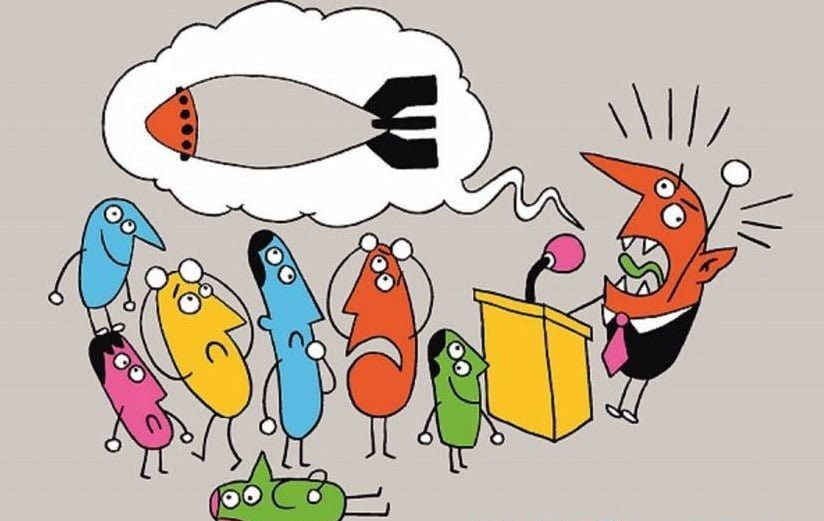Georgia’s current efforts to counter disinformation are neither tactical nor farsighted enough to reverse the long-term damage sowed by disinformation.
Author: Caroline Sutcliffe is an award-winning media manager, political analyst and disinformation expert with with more than a decade of experience in Georgia and the South Caucasus. She previously worked as a Senior Project Manager for BBC Media Action
Disinformation and malign influence in Georgia, both internal and external, draws heavily on psychological drivers of human behavior to exploit and manipulate. Essentially, similar to the strategy the advertising world has adopted, disinformation’s strategy is to change perceptions and, ultimately, manipulate social behavior. Its goal is to shift attitudes, perceptions, values, and norms.
Georgia’s current adversaries deploy their information operations to undermine the resilience of Georgia’s democratic institutions, its social cohesion and impede the formation of inclusive national identity.
While there is broad consensus that disinformation and malign influence has devastating effects on democracy worldwide, it is more challenging to measure the direct impact that disinformation may have in discrediting political opponents or inducing voter apathy. Public opinion surveys provide some insight into whether or not key narratives spread through disinformation have taken root – which appears to be the case – but they are imprecise in measuring to what extent the disinformation efforts have indeed contributed to their prevalence and how.
While the latest poll by the International Republican Institute’s (IRI) Center for Insights in Survey Research shows a temporary increase in public trust in the government’s performance on COVID-19 and a small increase in positive views of the country’s trajectory since IRI’s last poll, public opinion is still hardly favorable; In October 2019, 78 percent of citizens thought Georgia was headed in the wrong direction, while 64 percent think so today. In fact, according to IRI, the majority of citizens have thought that the country is headed in the “wrong direction” for a while now: the figure has not dropped below 60% in the last 5 years.
This decline of trust in institutions, growing apprehension about which facts are right, and the subsequent questioning of Georgia’s democratic trajectory, is exactly what the experts say the disinformation operations seek to sow when they infiltrate the screens that so many Georgians are glued to.
However unfortunate, the malignant information operations are only set to grow in sophistication and breadth. Through the use of carefully calibrated artificial intelligence (AI) that exploits social media bias, the disinformation agents will seek to further compound polarization and exploit vulnerabilities, leveraging weaknesses in human psychology, gaps in knowledge, and hardship that breeds grievances to further destabilize, aggravate and demoralize the Georgian society.
Yet the current approach of Georgian civil society is often short-term in scope, insufficiently uncoordinated, under-funded, reactive, and neither sets the agenda in wider public discussion nor counters the longer-term damage on voter behavior. A number of Georgian NGOs are running discrete campaigns to counter disinformation such as fact-checking and myth-busting, media literacy, and making a political ads library available for Georgia.
To be successful, these CSO efforts require more financial backing, better political support, and the data-driven backbone.
Georgia needs to work longer-term to build the evidence-base concerning the stratification and behavior of the society: what motivates or inhibits knowledge, awareness, attitudes, and perceptions, what sways perceived social norms and power relationships, impedes self-efficacy and contributes to the shaping (or un-shaping) of values and norms?
Accordingly, while Georgian civil Society has done an excellent job understanding what disinformation is and how it is spread. CSOs are making headway in keeping the society alert about this threat, it still lacks a concrete means to assess, address and combat what disinformation actually does and to subsequently address and counter its effects, rather than simply its messages.
To achieve tangible results, the behavioral “triggers” that the disinformation effort is using most successfully need to be scrutinized, and the ensuing harmful impact counteracted, especially in respect to specific vulnerable segments of Georgia’s population.
This could be key to shaping a longer-term strategy that builds the skills of citizens to detect and dismiss disinformation, but to also taps into the growing evidence that initiatives that generate discussion on the drivers of disinformation, work to shape identity, increase efficacy, prompt social agency and political participation bring more sustainable results in building resilience towards hostile information operations in the long run.
We must face it: rebuilding the trust and legitimacy that has been undermined – among others – through disinformation is quite a long-term process. What it needs is a proactive, creative and innovative collective approach by the media and civil society that would highlight Georgia’s historic attachment to democratic values and connect them to its future in a compelling way that resonates with audiences. Thus Georgia’s own, democratic narrative can become the core of its resilience and inoculate the whole segments of society against the seductive and divisive messages of disinformation, pumped out en masse.
To have any notable impact on societal resilience to disinformation, Georgian civil society needs to more explicitly link up its current work on building awareness about disinformation and on exposing its most blatant cases, with more traditional effort of fostering a consensus around the country’s democratic future.
Why? Because a significant number of citizens must feel confident about their country and its institutions to discard the most brazen forms of disinformation, while the fact-checkers could weed out finer manipulations and the educators address the core beliefs. While building a basis of democratic consensus may not be a “silver bullet”, it is an essential foundation for countering disinformation.
In all of this, civil society cannot stand alone. Coordination and collaboration with the state – in its various guises – is essential for success. Sadly, there is a growing breach between the two – a matter that requires further reflection.

